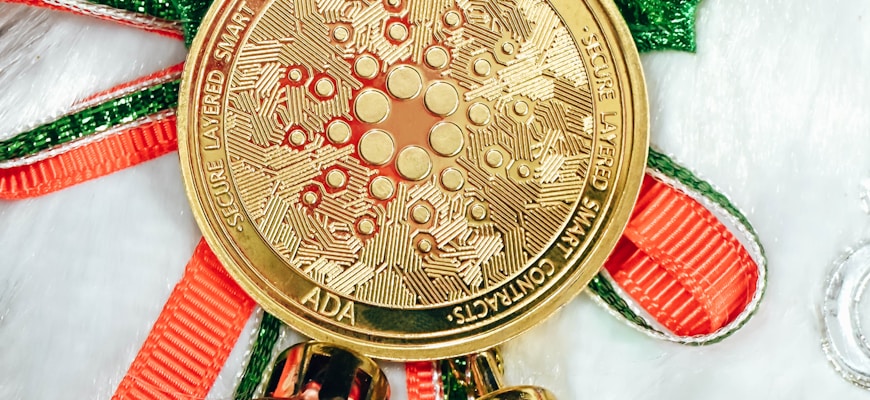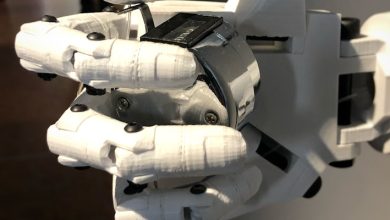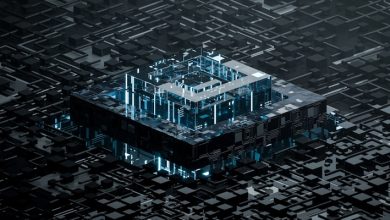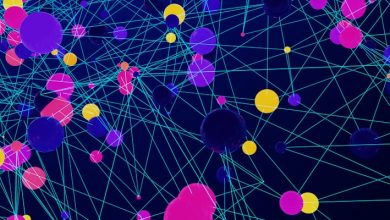The Intersection of Blockchain and Artificial Intelligence

- Understanding the Basics of Blockchain Technology
- Exploring the Potential of Artificial Intelligence in Blockchain Applications
- Challenges and Opportunities in Integrating Blockchain and AI
- The Role of Smart Contracts in Blockchain and AI Integration
- Case Studies of Successful Blockchain and AI Collaborations
- Future Trends in the Convergence of Blockchain and Artificial Intelligence
Understanding the Basics of Blockchain Technology
Blockchain technology is a decentralized, distributed ledger system that securely records transactions across a network of computers. Each block in the chain contains a list of transactions, and once a block is added to the chain, it is immutable and cannot be altered. This transparency and security make blockchain an ideal technology for various applications beyond cryptocurrencies.
One of the key features of blockchain is its ability to create trust in a trustless environment. By using cryptographic algorithms and consensus mechanisms, blockchain ensures that all participants in the network agree on the validity of transactions without the need for a central authority. This trustless nature of blockchain opens up new possibilities for industries such as finance, healthcare, supply chain, and more.
Blockchain technology also enables smart contracts, which are self-executing contracts with the terms of the agreement directly written into code. Smart contracts automatically enforce the terms of the agreement, eliminating the need for intermediaries and reducing the risk of fraud. This automation can streamline processes, reduce costs, and increase efficiency in various industries.
Moreover, blockchain provides transparency and traceability, allowing users to track the provenance of assets or goods throughout the supply chain. This can help in verifying the authenticity of products, preventing counterfeiting, and ensuring ethical sourcing practices. By leveraging blockchain technology, businesses can build trust with consumers and stakeholders by providing verifiable information about their products and operations.
In conclusion, understanding the basics of blockchain technology is essential for grasping its potential impact on various industries. Its decentralized, transparent, and secure nature makes it a powerful tool for revolutionizing processes, enhancing trust, and driving innovation. As blockchain continues to evolve and intersect with other technologies like artificial intelligence, the possibilities for transformative applications are endless.
Exploring the Potential of Artificial Intelligence in Blockchain Applications
Artificial intelligence (AI) has the potential to revolutionize blockchain applications by enhancing security, efficiency, and automation. By leveraging AI algorithms, blockchain networks can detect and prevent fraudulent activities, optimize transaction speeds, and streamline data management processes.
One of the key benefits of integrating AI into blockchain technology is the ability to analyze large volumes of data in real-time, enabling faster decision-making and improved accuracy. AI-powered blockchain applications can also adapt to changing market conditions and user behaviors, making them more resilient and responsive.
Furthermore, AI can help blockchain networks scale more effectively by optimizing resource allocation and improving network performance. This can lead to lower transaction costs, increased throughput, and enhanced overall user experience.
Overall, the intersection of AI and blockchain presents exciting opportunities for innovation and growth in various industries, including finance, healthcare, supply chain management, and more. As both technologies continue to evolve and mature, we can expect to see even more sophisticated and powerful applications that leverage the unique strengths of AI and blockchain in tandem.
Challenges and Opportunities in Integrating Blockchain and AI
Integrating blockchain and artificial intelligence presents a myriad of challenges and opportunities for businesses and industries looking to leverage the power of these cutting-edge technologies. By combining the transparency and security of blockchain with the advanced capabilities of AI, organizations can revolutionize processes, enhance efficiency, and drive innovation.
One of the main challenges in integrating blockchain and AI is the complexity of merging two complex systems. Ensuring seamless communication and data exchange between blockchain networks and AI algorithms requires careful planning and technical expertise. Additionally, issues related to scalability, interoperability, and data privacy must be addressed to fully realize the potential of this integration.
On the other hand, the integration of blockchain and AI opens up a world of opportunities for businesses. By using AI to analyze data stored on the blockchain, organizations can gain valuable insights, improve decision-making, and automate processes. Smart contracts powered by AI can streamline transactions and reduce the need for intermediaries, leading to cost savings and increased efficiency.
Furthermore, the combination of blockchain and AI can enhance security and trust in various applications, such as supply chain management, healthcare, and finance. By leveraging blockchain’s immutability and AI’s predictive capabilities, organizations can detect fraud, prevent data breaches, and ensure compliance with regulations.
The Role of Smart Contracts in Blockchain and AI Integration
Smart contracts play a crucial role in the integration of blockchain and artificial intelligence (AI). These self-executing contracts are coded to automatically enforce and facilitate the terms of an agreement between parties. By leveraging blockchain technology, smart contracts ensure transparency, security, and immutability in transactions.
In the context of AI integration, smart contracts can streamline and automate various processes. For instance, in supply chain management, smart contracts can be used to track the provenance of goods using IoT sensors and AI algorithms. This not only enhances transparency but also reduces the risk of fraud and errors in the supply chain.
Moreover, smart contracts can be utilized in AI-driven decentralized applications (dApps) to enable secure and efficient interactions between users and AI algorithms. These contracts can govern the execution of AI models, data sharing, and payments in a trustless and decentralized manner. This not only enhances the scalability of AI applications but also ensures data privacy and security.
Overall, the combination of smart contracts, blockchain, and AI opens up new possibilities for creating innovative solutions across various industries. By automating processes, ensuring transparency, and enhancing security, this integration paves the way for a more efficient and trustworthy digital ecosystem.
Case Studies of Successful Blockchain and AI Collaborations
Several successful collaborations between blockchain and artificial intelligence have demonstrated the potential of combining these technologies. These case studies showcase the innovative ways in which blockchain and AI can work together to solve complex problems and drive business growth.
- One notable example of a successful blockchain and AI collaboration is in the healthcare industry. By using blockchain to securely store and share patient data, and AI to analyze this data for insights, healthcare providers can improve patient care and outcomes. This combination of technologies has the potential to revolutionize the healthcare industry by enabling more personalized and effective treatments.
- Another compelling case study of blockchain and AI working together is in supply chain management. By leveraging blockchain’s transparency and immutability to track products throughout the supply chain, and AI’s predictive analytics to optimize processes, companies can improve efficiency, reduce costs, and enhance trust among stakeholders. This collaboration has the power to transform how goods are produced, distributed, and consumed.
- Furthermore, the financial sector has seen successful implementations of blockchain and AI collaborations. By using blockchain for secure transactions and AI for fraud detection and risk assessment, financial institutions can enhance security, streamline operations, and provide better services to customers. This synergy between blockchain and AI is reshaping the financial industry and paving the way for more innovative financial products and services.
Overall, these case studies demonstrate the immense potential of combining blockchain and artificial intelligence. By leveraging the strengths of both technologies, organizations can unlock new opportunities, drive innovation, and stay ahead in today’s rapidly evolving digital landscape.
Future Trends in the Convergence of Blockchain and Artificial Intelligence
The future trends in the convergence of blockchain and artificial intelligence are promising. As these two technologies continue to evolve, they are expected to revolutionize various industries and sectors. One of the key trends to watch out for is the increased integration of AI algorithms into blockchain networks. This integration will enhance the efficiency and security of blockchain systems, making them more robust and reliable.
Another trend to look out for is the rise of decentralized AI marketplaces powered by blockchain technology. These marketplaces will enable individuals and organizations to buy and sell AI algorithms securely and transparently. This will democratize access to AI technologies and foster innovation in the field.
Moreover, the combination of blockchain and AI is expected to lead to the development of self-learning blockchain networks. These networks will be able to autonomously adapt and optimize themselves based on the data they process. This self-learning capability will make blockchain systems more intelligent and efficient, paving the way for new applications and use cases.
Furthermore, the convergence of blockchain and AI is likely to drive the adoption of smart contracts powered by AI algorithms. These smart contracts will be able to automatically execute and enforce themselves based on predefined conditions. This will streamline various processes across industries, such as supply chain management, finance, and healthcare.
In conclusion, the future of the convergence of blockchain and artificial intelligence is bright. As these technologies continue to advance and merge, they will unlock new possibilities and transform the way we live and work. It is essential for businesses and organizations to stay informed about these trends and leverage the opportunities they present to stay ahead in the rapidly evolving digital landscape.




